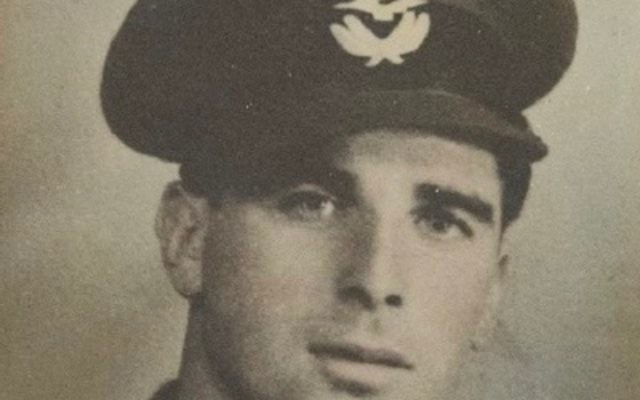Remembering a heroic Aussie
ALMOST 100 years ago Amichai Honig was born in Perth. While the young Jewish boy may have had humble beginnings, he would go on to become a valiant war hero whose descendants are committed to the preservation of his memory.
ALMOST 100 years ago Amichai Honig was born in Perth. While the young Jewish boy may have had humble beginnings, he would go on to become a valiant war hero whose descendants are committed to the preservation of his memory.
Cousin Rena Rabin shared the remarkable story of Honig with The AJN prior to Anzac Day.
Honig was raised in Melbourne by parents born in Palestine, who bestowed their love and yearning for Zion upon him.
Following his bar mitzvah, the family returned to the Holy Land, and settled in Hadera.
At the outbreak of World War II, Honig volunteered for the British Royal Air Force (RAF) and, with his Australian nationality, was accepted and sent to the flying school in Egypt. Eventually he was made a flight sergeant and joined the Australian Squadron Number 14 in the Western Desert.
Also serving in Iraq and Libya, Honig was praised as “the bearded hero”, participating in brave offensive actions which included bombing enemy positions in Tobruk, Benghazi and one particularly courageous mission. While his fellow fighter bombers returned to base due to poor weather, under the cover of fog, Honig unloaded all bombs on a German target – an action which has been praised as softening “the German positions, facilitating their [Allied forces] conquest”.
For this, Honig was awarded the high honour of a Distinguished Flying Medal.
He was later summoned to Kenya to serve as an instructor at a flying school. But Honig craved to return to the front, and it is there he met his fate.
In 1943 at the young age of 23, his plane was shot into the sea following a battle with an enemy warship off the coast of Greece. According to a report sent by the base command to the RAF headquarters, Honig as a commander was the first to attack the enemy ship and used his cannons – but the bombs that he dropped failed to explode.
“He was very daring and fearless,” reflected Rabin as she recalled Honig taking her by the hand when she was six years old, and scared during a lightning storm.
“You have nothing to fear,” he told her.
Following the 1943 incident, Honig was listed as missing and without his body being found, was presumed dead for seven years.
His parents were adamant to locate their son, and after a lengthy wait, received permission to visit Greece. For a month, they moved from island to island, meeting with villagers, speaking with fisherman and questioning members of the Greek Underground movement. Finally, they spoke with a local who remembered the burial of a British pilot after being found washed ashore. They were led to the grave, and following further examination of his remains, it was determined that the body was that of Honig. In 1950, his parents gathered his remains and brought him home to the newly established State of Israel for burial among the fallen of the War of Independence in Hadera.
“He came from a family that not only loved Israel, but loved the Jewish people. He exemplified the new strong sabra,” said Rabin.
“Amichai carried his nationalism strongly, and all through his life showed an independence of spirit, and that’s why we are very proud of him.”
REBECCA DAVIS


comments